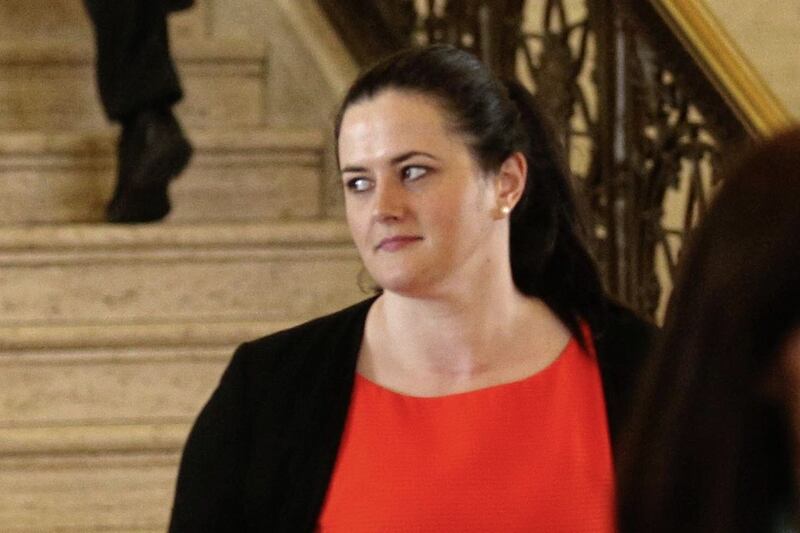Domestic abuse victims will be protected under Westminster legislation, Stormont's former justice minister has said.
Measures to combat coercive control, which includes intimidation and psychological abuse, are to be contained in the Domestic Abuse Bill.
A series of different laws can be used to prosecute aspects of domestic abuse but there is no overarching offence.
Ex-minister Claire Sugden, who campaigned for changes to the law, said: "My heart is bursting."
The PSNI records around 30,000 domestic abuse incidents every year.
Coercive control has been an offence in England and Wales since 2015, but the collapse of Stormont two and a half years ago has delayed changes to law in a range of public policy areas.
Women's Aid has campaigned for change because violence is often preceded by coercive control.
Ms Sugden wrote on social media: "It is Government's hidden shame for allowing it to happen and doing little to tackle it before now.
"During my time in office, I made tackling domestic abuse my overarching priority.
"My biggest regret of the Stormont collapse is not fulfilling my promise to get domestic domestic abuse law onto statute while minister."
She said coercive control comes through psychological abuse.
"It is usually the reason why victims don't just leave and also the beginning of physical violence. An accurate description is feeling like always walking on eggshells."
MP Stella Creasy said she was proud of the organisations that worked for the law change.
"Finally, finally, the voices of women in Northern Ireland are starting to be heard as equals, not afterthoughts," she said.
Westminster has become increasingly involved in devolved matters over recent weeks.
Labour MPs added amendments surrounding the liberalisation of abortion and same-sex marriage during consideration of laws.
Opponents of such legislative activism argue that it could infringe on the devolution settlement and the view that decisions are best made locally.
Campaigners for change believe that with Stormont out of action due to continued disagreement between the DUP and Sinn Fein, Westminster is their best option.
Domestic Abuse Offence provisions for NI to be included in Westminster Home Office Bill published today. A huge success for victims & survivors of domestic abuse. My heart is bursting. pic.twitter.com/F59IUuMiyO
— Claire Sugden (@ClaireSugden) July 16, 2019





